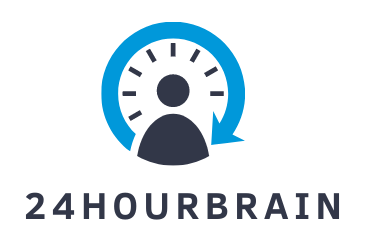You’re about to take a math exam, and you’re already feeling uneasy and nervous.
You’re afraid of getting confused during the exam, which could cause you to fail.
You can pass the exam with less nervousness if you use a few techniques. The importance of preparation and relaxation, as well as mental fitness, in the examination date cannot be overstated. We show you how to do it right here!
First, Understand, Then Practice!
A common mistake in learning math is failing to grasp the fundamentals.
You must first understand the facts and tasks of mathematics.
Then you can start putting them into practice for yourself. In concrete terms, this means you truly comprehended the task.
When you practice, it means you have already learned something, which you then put to use in the exercise.
Seeking Assistance Is Not a Disgrace
This also directly relates to the next major error that many people make. It is difficult to admit that one does not understand.
The problem is that you end up hurting yourself more than helping yourself.
If you refuse to admit that you don’t completely understand something, you won’t be able to get help.
Be self-assured and seek help as soon as possible!
It is especially important to get allies “on board” if you are struggling with math.
As previously stated, you must first understand math, which is what a study partner is for.
It is preferable to find someone on your level or slightly higher.

Study at the Proper Pace
There have been a lot of studies on the best times to learn and the best number of times to do something over and over again.
Here are the key points for achieving the ideal learning rhythm:
- Learn in smaller groups more frequently. A unit can last between 30 and 60 minutes. Then take a 5-15 minute break.
- Recite what you learned throughout the day.
- Repeat briefly, especially before bedtime.
- The following day, this will greatly improve your memory.
- Study for several weeks, taking long breaks between days at first and then every day near the end.
- A power nap is ideal after studying.
Summarize
It is common practice in subjects such as politics and history to summarize what you have learned.
In math, on the other hand, people frequently just practice and practice without sitting down and putting everything important on one sheet of paper.
A summary can also be written in mathematics by calculating each task type once on a sheet of paper as an overview.
Make Effective Use of the Lessons
If you use the lessons correctly for yourself, you can save many hours of learning.
You should pay attention in class and ask questions. If you don’t understand something, keep asking questions until you do. You won’t have to teach yourself everything at home anymore.
This is much more time consuming than simply asking the teacher or classmates who have already understood in class.
Asking may require some bravery at first, but it will pay off tenfold in the end!
It is preferable to ask a lot of questions and then get a good math grade rather than the other way around.
Most of the time, you are not alone with your questions; it’s just that no one dares to ask one.
Maintain a Cool Demeanor
An exam is stressful, which is bad for the brain’s performance.
In the long run, stress makes you unfocused, and you should never forget that you can only do your best because you can’t do anything else.
The right breathing technique can help you relax both before and during the exam. Inhale for 4 seconds and exhale for 6 seconds. Rep the entire procedure ten times more.Repeat this breathing technique whenever you notice stress or panic setting in.

Mental Practice for the Math Exam
When you have thoroughly understood everything and have diligently practiced, you should begin preparing for even more brain power. Here’s an overview of how to prepare your brain for the exam:
Get plenty of rest in the days leading up to and on the day of the exam.
Eating the right foods, which include plenty of vegetables and fruits and little sugar, using the above-mentioned breathing technique.
Drink plenty!!! (tea and water)
Approach the Exam Strategically
When you are in the exam and have the task sheet in front of you, you can score again by following this strategy:
Skim through all of the assignments.
Calculate how much time you have for each task, and remember to leave about 10 minutes at the end for proofreading.
Which tasks are time-consuming and which are not.
Prioritize tasks that are simple for you.
Do not cling to a barricade for too long. If you become stuck on one task, move on to another and return to it later.

Conclusion
The most important aspect is planning. Good planning is essential.
If you don’t understand something, ask a classmate, parent, or tutor for assistance right away.
A summary of all types of tasks is extremely useful because it provides you with a comprehensive overview to study before sleeping or after waking up.
Furthermore, a good summary usually makes you feel a little more relaxed because the “task mountain” no longer appears to be too big, which is important so that the brain can call up the full performance.
Proper nutrition, breathing techniques, adequate sleep, and plenty of water can all help you perform better.
In order to avoid spending too much time on one task during the exam, read through all of the tasks and estimate how long they will take.


